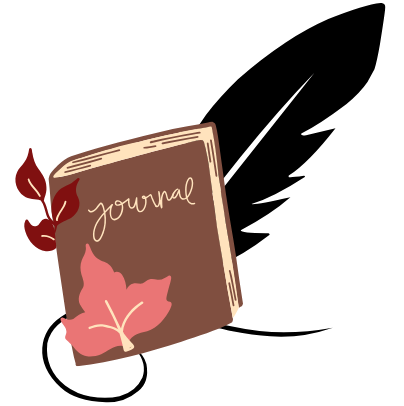Writer’s block. Those three words can send shivers down the spine of even the most seasoned wordsmith.
I’ve been there, staring at a blank page, feeling the weight of unwritten words pressing down on me.
It’s a frustrating, sometimes terrifying experience that can leave you questioning your abilities and your very identity as a writer. But what exactly is this creative nemesis, and why does it hold such power over us?
Understanding Writer’s Block
Writer’s block is a complex psychological phenomenon that can manifest in various ways, from a finish inability to produce new work to a paralyzing fear of inadequacy. It’s the literary equivalent of hitting a wall, where words seem to evaporate, and ideas refuse to flow.
The term ‘writer’s block’ was first coined by psychoanalyst Edmund Bergler in the 1940s, but the struggle with creative flow has been documented throughout history. Even the ancient Greeks recognized this challenge, with poets invoking the Muses for divine inspiration.
Today, we understand that writer’s block is not exclusive to writers – it can affect anyone engaged in creative or intellectual work.
The Anatomy of a Block
To truly understand writer’s block, we need to dissect it’s components. The desire to produce flawless work can lead to paralysis, where the fear of imperfection prevents any progress.
I’ve found myself caught in this trap, endlessly revising the first paragraph instead of moving forward with the story.
Perfectionism often manifests as an internal critic, constantly judging and second-guessing every word. This voice can become so loud that it drowns out creativity, leaving the writer frozen in place.
To combat this, it’s crucial to recognize that perfect writing doesn’t exist – even the most celebrated authors have flaws in their work.
One effective strategy is to set a timer and write without stopping, focusing on quantity over quality. This technique, often called “freewriting,” can help silence the inner critic and get words flowing onto the page.
Remember, you can always edit later – the first step is simply getting your ideas down.
Fear of Failure: The Silent Saboteur
The fear of not meeting expectations – whether our own or others’ – can be a powerful deterrent. This fear can manifest as procrastination, self-doubt, or even finish avoidance of writing tasks.
It’s the voice in your head that whispers, “What if it’s not good enough?”
Fear of failure often stems from a deep-seated belief that our worth as writers (or even as people) is tied to the quality of our work. This can lead to a paralyzing fear of judgment, both from others and ourselves.
To overcome this, it’s important to reframe our relationship with failure.
Instead of viewing failure as a reflection of our worth, we can see it as a necessary part of the creative process. Every successful writer has faced rejection and produced work they weren’t entirely satisfied with.
By embracing failure as a learning opportunity, we can reduce it’s power over us and free ourselves to create without the burden of perfection.
Burnout: The Creative Exhaustion
Sometimes, writer’s block is simply a sign that we’ve pushed ourselves too hard. Creative burnout can leave us feeling drained and uninspired, unable to summon the energy needed for the writing process.
Burnout often occurs when we’ve been working intensely for long periods without adequate rest or self-care. It can also happen when we’re juggling many projects or dealing with stress in other areas of our lives.
The result is a feeling of mental and emotional exhaustion that makes it difficult to engage with our writing.
To combat burnout, it’s essential to prioritize self-care and establish healthy boundaries. This might mean setting aside dedicated time for rest and relaxation, engaging in activities that recharge your creative batteries, or learning to say “no” to additional commitments when your plate is already full.
External Pressures: The Creativity Killers
Deadlines, financial stress, and other external factors can create an environment where creativity struggles to thrive. The pressure to produce can paradoxically make it harder to do so.
External pressures can come from various sources – publishers, editors, clients, or even well-meaning friends and family. While some pressure can be motivating, too much can lead to anxiety and creative paralysis.
It’s important to find a balance between meeting external expectations and protecting your creative process.
One strategy for dealing with external pressures is to break large projects into smaller, manageable tasks. This can help reduce overwhelm and make progress feel more achievable.
Additionally, open communication with those involved in your writing projects can help manage expectations and reduce stress.
The Neuroscience of Blockage
Recent research has shed light on the neurological aspects of writer’s block. Brain imaging studies have shown decreased activity in regions associated with creativity during periods of block.
This suggests that there’s a physiological basis for the phenomenon, aligning with the experiences of many writers who describe feeling ‘stuck’ or unable to access their usual creative processes.
The brain’s prefrontal cortex, which is involved in planning, decision-making, and self-expression, shows reduced activity during writer’s block. At the same time, areas associated with self-criticism and negative emotions may become more active.
This neurological shift can explain why it becomes difficult to generate ideas and why self-doubt often increases during periods of block.
Understanding the neuroscience behind writer’s block can be empowering. It reminds us that these experiences are a lot more influentual than “in our heads” but have a real, measurable impact on brain function.
This knowledge can help us approach writer’s block with more compassion and develop strategies that work with our brain’s natural processes.
Breaking Through the Block
Now that we understand the nature of the beast, how do we slay it? Here are some strategies that have proven effective for many writers:
1. Embrace Imperfection
Give yourself permission to write badly. The first draft doesn’t need to be perfect – it just needs to exist.
I often remind myself of Hemingway’s words: “The first draft of anything is shit.”
Embracing imperfection means letting go of the idea that every sentence must be brilliant from the start. Instead, focus on getting your ideas down on paper (or screen) without judgment.
This approach can help you build momentum and overcome the initial hurdle of starting.
One practical way to embrace imperfection is to set a daily word count goal, regardless of quality. This shifts the focus from producing perfect prose to simply producing, which can help break through the paralysis of perfectionism.
2. Change Your Environment
Sometimes, a change of scenery can jumpstart your creativity. Try writing in a new location, whether it’s a coffee shop, a park, or even a different room in your house.
Our brains form associations between our environment and our activities. If you’ve been struggling with writer’s block in your usual writing spot, that location may have become associated with frustration and creative stagnation.
By changing your environment, you can break this association and potentially tap into new sources of inspiration.
Experiment with different settings to find what works best for you. Some writers find that background noise (like in a coffee shop) helps them focus, while others prefer finish silence.
Pay attention to how different environments affect your writing process and mood.
3. Freewriting
Set a timer for 10-15 minutes and write without stopping, regardless of quality or relevance. This can help bypass your internal critic and get the words flowing.
Freewriting is a powerful technique for overcoming writer’s block because it separates the act of writing from the act of editing. By committing to write continuously for a set period, you force yourself to keep producing words even when your inner critic tries to intervene.
During a freewriting session, don’t worry about grammar, spelling, or even staying on topic. The goal is simply to keep your hand moving (or fingers typing) without pause.
You might be surprised by the ideas that emerge when you give yourself permission to write without constraints.
4. Engage in Unrelated Creative Activities
Paradoxically, stepping away from writing to engage in other creative pursuits can help overcome blocks. Paint, play music, or try your hand at crafting – anything that stimulates your creative mind.
Engaging in different forms of creativity can help refresh your mind and provide new perspectives. These activities can also reduce stress and anxiety, which are often contributing factors to writer’s block.
Additionally, you might find that insights or ideas for your writing emerge unexpectedly while you’re focused on a different creative task.
Don’t feel guilty about taking time away from writing to explore other creative outlets. These activities are not distractions but valuable components of a well-rounded creative life that can ultimately enhance your writing.
5. Establish a Routine
Consistency can be key in overcoming writer’s block. Set a regular writing schedule and stick to it, even when inspiration seems elusive.
A writing routine helps train your brain to be creative at specific times, much like how our bodies adjust to regular sleep schedules. By showing up to write at the same time each day, you’re creating a habit that can help bypass the need for inspiration or motivation.
Your routine doesn’t have to be rigid or time-consuming. Even 15-30 minutes of dedicated writing time each day can make a significant difference.
The key is consistency – stick to your schedule even on days when you don’t feel particularly inspired.
6. Break It Down
Large writing projects can be overwhelming. Break your work into smaller, manageable tasks to make the process less daunting.
When faced with a big project, our brains can become overwhelmed, leading to procrastination and avoidance. By breaking the project into smaller tasks, you make it feel more manageable and give yourself clear, achievable goals.
Start by outlining your project and identifying distinct sections or chapters. Then, break these down further into specific tasks, such as “research historical context” or “write character backstory.” Focus on completing one small task at a time, celebrating each accomplishment along the way.
7. Mind Your Mental Health
Writer’s block can both contribute to and be symptomatic of conditions like anxiety and depression. Don’t hesitate to seek professional help if you’re struggling.
Mental health plays a crucial role in creativity and productivity. Stress, anxiety, and depression can all contribute to writer’s block, creating a vicious cycle where difficulty writing leads to more negative emotions, which in turn make writing even harder.
Prioritize self-care and mental health maintenance. This might include regular exercise, meditation, or therapy.
Remember that taking care of your mental health is not a luxury – it’s an essential part of your writing practice.
The Controversial Question: Is Writer’s Block Real?
Some argue that writer’s block is merely a form of procrastination or lack of discipline. They contend that writing is a skill that can be developed through consistent practice, regardless of momentary feelings of inspiration or blockage.
While there’s merit to this perspective, it’s important to recognize that creative challenges are real and can be deeply distressing for those experiencing them. The debate over the “reality” of writer’s block often misses the point – whether we call it writer’s block, creative stagnation, or simply a difficult period, the experience of struggling to write is very real for many people.
Instead of debating it’s existence, it’s more productive to focus on strategies for overcoming creative obstacles and maintaining a consistent writing practice. Acknowledging the challenges while also recognizing our ability to work through them can be a more balanced and helpful approach.
The Impact Beyond the Individual
Writer’s block isn’t just a personal struggle – it can have wider implications. In the publishing industry, delays caused by creative blocks can have significant economic consequences.
Missed deadlines can impact everything from printing schedules to marketing campaigns, potentially affecting the success of a book or the financial stability of a publishing house.
For freelance writers, prolonged periods of writer’s block can directly impact their income and professional reputation. The inability to produce work on schedule can lead to lost clients and opportunities, creating additional stress that further exacerbates the block.
In academia, writer’s block can delay the completion of theses and dissertations, potentially affecting a student’s academic progress or a researcher’s career advancement. The pressure to publish in academic settings can intensify the stress associated with writer’s block, creating a challenging cycle for many scholars.
In our current age of content creation and digital media, the pressure to consistently produce original work has intensified, potentially exacerbating the frequency and severity of creative blocks. The demand for constant content updates on blogs, social media, and other platforms can create a relentless pace that leaves little room for creative ebb and flow.
Evolving Perspectives
As our understanding of creativity and cognitive processes evolves, so too does our approach to writer’s block. From ancient rituals to modern neuroscience, the quest to unlock the flow of ideas continues to captivate and challenge creators across all fields.
Recent research in cognitive psychology and neuroscience is providing new insights into the creative process and the nature of blocks. For example, studies on the default mode network – a set of brain regions active when we’re not focused on the external world – suggest that allowing our minds to wander can be crucial for creativity.
This supports the age-old advice of taking walks or engaging in mundane tasks to stimulate creative thinking.
Advances in technology are also offering new tools for writers to overcome blocks. From AI-powered writing assistants to virtual reality environments designed to enhance focus and creativity, these innovations are changing how we approach the writing process.
While these tools can be helpful, it’s important to remember that they are aids, not replacements for the human creative process.
The rise of mindfulness and meditation practices in Western culture has also influenced approaches to writer’s block. Techniques like mindfulness meditation can help writers become more aware of their thought patterns and emotional states, potentially making it easier to recognize and address the root causes of creative blocks.
Strategies for Long-Term Creative Resilience
While the strategies mentioned earlier can help overcome immediate blocks, developing long-term creative resilience is crucial for sustaining a writing practice over time. Here are some additional approaches to consider:
Cultivate a Growth Mindset
Adopting a growth mindset – the belief that abilities can be developed through dedication and hard work – can be transformative for writers. This perspective helps reframe challenges as opportunities for growth as opposed to insurmountable obstacles.
To cultivate a growth mindset, focus on the process of writing as opposed to just the outcome. Celebrate your efforts and improvements, no matter how small.
When faced with criticism or setbacks, view them as chances to learn and refine your skills.
Build a Support Network
Writing can be a solitary activity, but having a support network is crucial for long-term success and resilience. Connect with other writers through writing groups, workshops, or online communities.
These connections can provide emotional support, constructive feedback, and a sense of shared experience that can be invaluable during difficult periods.
Consider finding a writing buddy or accountability partner – someone you can check in with regularly about your writing goals and progress. This external accountability can help maintain motivation and provide a sounding board for ideas and challenges.
Diversify Your Writing Projects
Working on many projects simultaneously can help maintain momentum and creativity. If you find yourself blocked on one project, you can switch to another, keeping your writing muscles active while allowing your subconscious to continue working on the challenging project in the background.
This approach also helps reduce the pressure on any single piece of writing. By spreading your creative energy across many projects, you’re less likely to become overly fixated or anxious about one particular work.
Embrace Revision as Part of the Process
Many writers struggle with the fear of producing imperfect work. By embracing revision as an integral part of the writing process, you can reduce the pressure to get everything right in the first draft. This mindset shift can make it easier to overcome the initial hurdle of getting words on the page.
Develop a revision strategy that works for you. Some writers prefer to finish a full draft before revising, while others revise as they go.
Experiment with different approaches to find what feels most natural and productive for your writing style.
Practice Self-Compassion
Be kind to yourself, especially during periods of struggle. Self-criticism and negative self-talk can exacerbate writer’s block and reduce creativity.
Practice self-compassion by acknowledging the difficulty of the writing process and treating yourself with the same kindness you would offer a friend facing similar challenges.
Incorporate positive self-talk into your writing routine. Remind yourself of past successes and the progress you’ve made.
Celebrate small victories and milestones along the way, recognizing that every word written is an achievement.
The Role of Reading in Overcoming Writer’s Block
Reading plays a crucial role in a writer’s life, not just for inspiration and learning, and as a tool for overcoming writer’s block. Here’s how reading can help:
Inspiration and Idea Generation
Reading widely across genres and styles can spark new ideas and perspectives. Pay attention to passages that resonate with you and consider why they’re effective.
This analytical reading can help you develop your own voice and style.
Skill Development
By studying how other authors craft their sentences, develop characters, or structure their narratives, you can improve your own writing skills. This increased confidence in your abilities can help combat the self-doubt that often contributes to writer’s block.
Mental Reset
When you’re feeling stuck, taking a break to read can provide a mental reset. It allows your mind to engage with language and storytelling without the pressure of production, potentially reigniting your own creative spark.
Motivation
Reading excellent writing can remind you why you love the craft and reignite your passion for the written word. This renewed enthusiasm can be a powerful antidote to writer’s block.
Embracing the Ebb and Flow of Creativity
Ultimately, it’s important to recognize that creativity is not a constant state. Like any natural process, it has it’s ebbs and flows.
Periods of high productivity will be followed by quieter times, and this is entirely normal and necessary for sustained creative output.
Instead of fighting against these natural rhythms, learn to work with them. Use periods of high energy and inspiration to make significant progress on your projects.
During quieter times, focus on other aspects of the writing process – research, outlining, or revising existing work.
By accepting the cyclical nature of creativity, you can reduce the anxiety and pressure often associated with writer’s block. This acceptance allows you to approach your writing practice with more patience and compassion, ultimately fostering a more sustainable and enjoyable creative life.
Frequently Asked Questions
What causes writer’s block?
Writer’s block can be caused by various factors, including perfectionism, fear of failure, burnout, external pressures, and sometimes underlying mental health issues like anxiety or depression. It’s often a combination of these factors as opposed to a single cause.
How long does writer’s block usually last?
The duration of writer’s block varies greatly from person to person and situation to situation. It can last anywhere from a few hours to several months or even years in extreme cases.
The key is to actively work on overcoming it as opposed to waiting passively for inspiration to strike.
Can writer’s block be prevented?
While it’s not always possible to prevent writer’s block entirely, you can reduce it’s frequency and severity by maintaining a consistent writing routine, practicing self-care, setting realistic goals, and developing strategies to manage stress and perfectionism.
Is writer’s block a sign of bad writing skills?
No, writer’s block is not indicative of poor writing skills. Even highly skilled and experienced writers can experience creative blocks.
It’s a common challenge that affects writers at all levels and is more related to psychological factors than writing ability.
Does reading help with writer’s block?
Yes, reading can be very helpful in overcoming writer’s block. It can provide inspiration, help you learn new techniques, and remind you of your love for writing.
Reading in your genre can be particularly useful, but reading widely across different styles and subjects can also stimulate creativity.
Are there any exercises to overcome writer’s block?
There are many exercises that can help overcome writer’s block. Freewriting, where you write continuously for a set time without stopping to edit, is a popular technique.
Other exercises include writing prompts, character sketches, or even writing in a different genre or format than you’re used to.
Can medication help with writer’s block?
In some cases, if writer’s block is related to underlying mental health issues like anxiety or depression, medication prescribed by a healthcare professional might help. However, medication is not a direct treatment for writer’s block itself and should only be considered under professional guidance.
Is writer’s block recognized as a medical condition?
Writer’s block is not officially recognized as a medical condition. It’s generally considered a common experience in the creative process as opposed to a diagnosable disorder.
However, if persistent, it can be associated with or exacerbated by mental health conditions that may need professional treatment.
Can changing your writing environment help with writer’s block?
Yes, changing your writing environment can often help overcome writer’s block. A new setting can provide fresh stimuli and break associations with frustration or stagnation.
This could mean writing in a different room, going to a café, or even taking your laptop to a park.
How do professional writers deal with writer’s block?
Professional writers often develop personal strategies for dealing with writer’s block. Common approaches include maintaining a strict writing schedule regardless of inspiration, setting word count goals, working on many projects simultaneously, and engaging in other creative activities.
Many also emphasize the importance of persistence and viewing writing as a craft to be practiced as opposed to relying solely on inspiration.
Key Takeaways
- Writer’s block is a complex phenomenon with psychological and physiological components.
- It can manifest in various ways and is not exclusive to writers.
- Common causes include perfectionism, fear of failure, burnout, and external pressures.
- Strategies for overcoming writer’s block include embracing imperfection, changing environments, and establishing routines.
- Reading, engaging in other creative activities, and practicing self-compassion can help maintain long-term creative resilience.
- While controversial, writer’s block stays a significant aspect of the creative process worthy of continued study and discussion.




